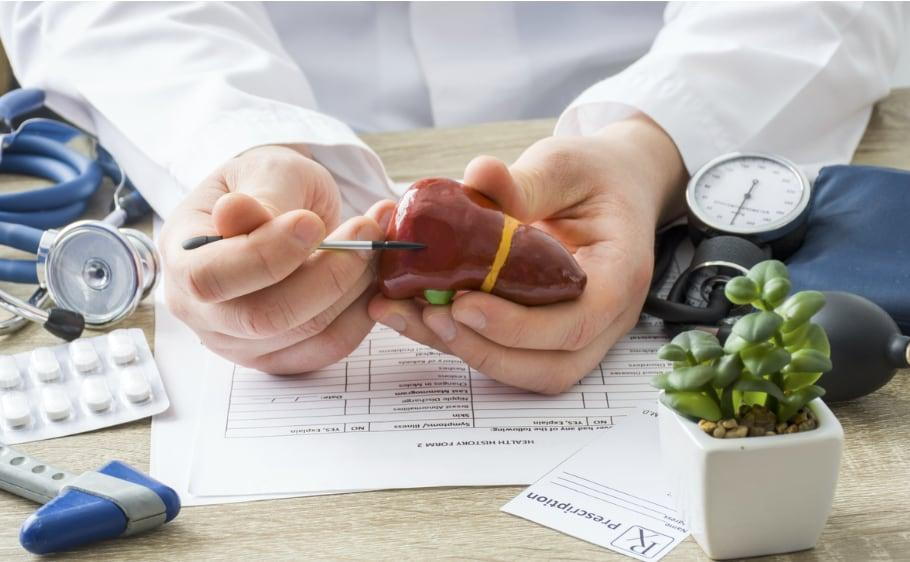
Everyone gets sick or feels run down once in a while. Maybe you’re feeling fatigued with no real explanation for a week, or you’ve had a couple of bouts of indigestion, diarrhea, or constipation. Those things alone may be signs that you’re a little stressed, or maybe you have a viral infection that needs to run its course. Or, these may be signs of digestive problems that could be indicative of a deeper digestive issue. Read on to learn a little bit more about different types of digestive symptoms, what you should look out for, and when it warrants a call to a GI specialist for evaluation.
Signs and Symptoms of Digestive Issues
Most insurance companies have a certain protocol that they follow, and most often, the first appointment patients will make is with their primary care physician, unless they are already under the care of a gastroenterologist and are experiencing new or changing symptoms. If you experience one instance of gas, constipation, or diarrhea, most likely, you aren’t going to give your PCP a call. But if these conditions persist you should give your primary healthcare provider a call. Be on the lookout for new digestive symptoms such as:
- Persistent gas
- Bloating
- Diarrhea
- Constipation
- Trouble swallowing
- Heartburn
- Persistent fatigue or lethargy
If you’re experiencing one or more of these symptoms persist, it may be indicative of some type of digestive problem. Some GI and digestive problems are more “quality of life” issues, where symptoms affect comfort more than anything else, while others can be more serious.
If you notice blood in your stool or wonder about hemorrhoids, you discuss it with your primary physician. Rectal bleeding can be a byproduct of hemorrhoids, or it can be a symptom of other GI disturbances, but it certainly warrants a thorough workup. Similarly, hemorrhoids should also be evaluated and treated. They are not a life-threatening or severe condition, but they can certainly affect the quality of life and can be painful. Some hemorrhoids are internal and are located on the inside of the rectum. These can be removed via colonoscopy or through other methods. Others may need surgical intervention.
Signs and Symptoms You Notice Over Time
Of course, everyone notices a bout of diarrhea or heartburn that lasts a few days, but there are other, more benign signs and symptoms of GI problems that you may not notice over a week’s - or even a month’s - time.
One sign to look for is that your jeans are suddenly too tight. It’s not like you’ve suddenly put on weight, or you’ve gone off your diet. However, jeans that maybe fit three weeks ago are now a little bit snug, and it’s noticeable. This can be because you’re bloated. Bloating can be the result of many different things - from overeating at a few sittings to lactose intolerance, but it can also be from gastroesophageal reflux disease (GERD), irritable bowel syndrome (IBS), constipation, gallstones, or other GI problems. If you find that your jeans are too tight, and you’re also experiencing heartburn and other GI disturbances, let your doctor know.
On the flip side, if your pants are suddenly too loose and you’re not trying to diet or lose weight, there may also be a problem. Unexplained weight loss could be a sign of an underlying GI problem. If you notice that you’re shedding pounds unexpectedly, it’s time to see your physician.
If your stools are black, tarry stools. It can be a sign of one or more GI problems, so see your doc f you notice these.
Everyone passes gas, but if you notice that your gas is particularly smelly and persistent, this may be a sign of an intestinal issue. Also, unusual amounts of gas paired with other symptoms, such as abdominal pain, changes in bowel habits, or unexplained weight loss are all reasons to see a GI specialist or your PCP.
If you experience trouble swallowing beyond something of a cold or viral infection (such as swollen lymph nodes), let your doctor know. If it feels like there is a “lump” in your throat and it’s painful to swallow food and liquid, this may be a sign of trouble with your esophagus. If trouble swallowing is also paired with coughing and hiccupping, see your PCP or GI specialist as soon as possible.
Common GI Problems
A GI specialist treats a wide array of disorders and problems. Patients may worry that by going to see a specialist that there may be something seriously wrong with them, but that is often not the case. Very often, a GI specialist will want to treat the motility of the GI tract (its ability to keep moving), and the treatment will be changing diet or exercise habits. This may include excluding dairy, adding more fiber to the diet, exercising more, or avoiding certain medications.
GI doctors also treat common, everyday conditions such as diarrhea, constipation, and heartburn.
Irritable bowel syndrome (IBS) is a common problem treated by GI specialists. The primary treatment for IBS includes avoiding certain foods or practices that trigger the irritation of the colon (such as caffeine). IBS, while not a life-threatening disorder, can be a significant condition quality of life issue.
GI specialists also treat inflammatory bowel diseases (IBD), such as ulcerative colitis and Crohn’s disease. Inflammatory bowel disease involves inflammation and damage to the tissue and lining of the colon. Left untreated IBD can result in significant and lasting damage.
Gastroenterologists also treat diseases of the liver, pancreas, and esophagus, treat anal disorders such as anal fissures and hemorrhoids, treat cancer such as colon cancer, and manage any disease or disorder that is part of the digestive system.
If you need more information about digestive disorders or need to be seen by a GI specialist, request an appointment with GI Associates today. We have five separate office locations in north and central Wisconsin.
